Related Research Articles

The Mass is a form of sacred musical composition that sets the invariable portions of the Christian Eucharistic liturgy, known as the Mass.
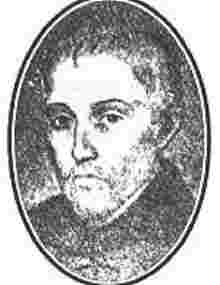
Tomás Luis de Victoria was the most famous Spanish composer of the Renaissance. He stands with Giovanni Pierluigi da Palestrina and Orlande de Lassus as among the principal composers of the late Renaissance, and was "admired above all for the intensity of some of his motets and of his Offices for the Dead and for Holy Week". His surviving oeuvre, unlike that of his colleagues, is almost exclusively sacred and polyphonic vocal music, set to Latin texts. As a Catholic priest, as well as an accomplished organist and singer, his career spanned both Spain and Italy. However, he preferred the life of a composer to that of a performer.
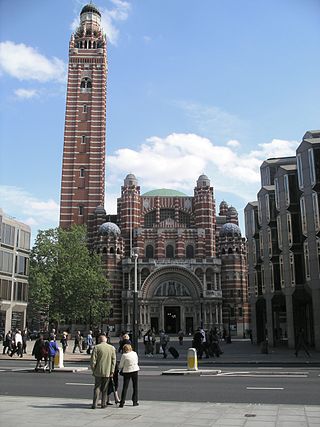
Westminster Cathedral is the mother church of the Catholic Church in England and Wales. It is the largest Catholic church in the UK and the seat of the Archbishop of Westminster.

Cristóbal de Morales was a Spanish composer of the Renaissance. He is generally considered to be the most influential Spanish composer before Tomás Luis de Victoria.

Francisco Guerrero was a Spanish Catholic priest and composer of the Renaissance. He was born and died in Seville.

Alonso Lobo was a Spanish composer of the late Renaissance. Although not as famous as Tomás Luis de Victoria, he was highly regarded at the time, and Victoria himself considered him to be his equal.
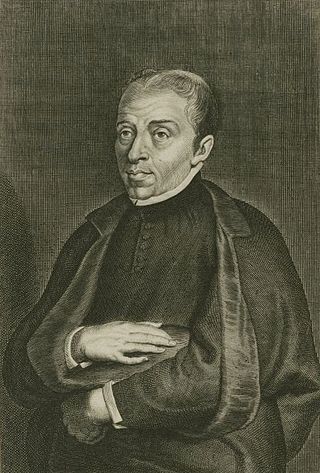
Duarte Lobo was a Portuguese composer of the late Renaissance and early Baroque. He was one of the most famous Portuguese composers of the time, together with Filipe de Magalhães, Manuel Cardoso, composers who all began their academic studies as students of Manuel Mendes. Along with John IV, King of Portugal, they represent the "golden age" of Portuguese polyphony.

The Tallis Scholars is a British professional early music vocal ensemble normally consisting of two singers per part, with a core group of ten singers. They specialise in performing a cappella sacred vocal music.
Francisco López Capillas (1608–1674) was a Mexican composer born in Mexico City. He was born Francisco López, the son of Bartolome López, potentially a royal notary, and María de la Trinidad. He was admitted into the Mexico City Cathedral choir in 1625, where he studied under Antonio Rodriguez Mata. In 1643, López was appointed the assistant organist and dulcian player in the Puebla Cathedral, but left Puebla in 1648 to seek other opportunities. His whereabouts for the next six years are unknown.
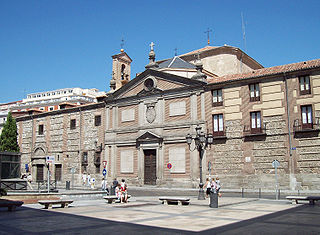
Officium Defunctorum is a musical setting of the Office of the Dead composed by the Spanish Renaissance composer Tomás Luis de Victoria in 1603. The texts have also been set by other composers including Morales.

Jeremy Summerly is a British conductor. He was educated at Lichfield Cathedral School, Winchester College, and New College, Oxford. While at Oxford he conducted the New College Chamber Orchestra and the Oxford Chamber Choir. After graduating with a first-class honours degree in music in 1982, he started work as a studio manager for BBC Radio, while pursuing postgraduate research in historical musicology at King's College London. Since 1991 he has been a presenter and reviewer for BBC's Radios 3 and 4, in particular for Radio 4's Front Row, and Radio 3's Record Review.
Pro Cantione Antiqua of London (PCA) is a British choral group which was founded in 1968 by tenor James Griffett, counter-tenor Paul Esswood, and conductor and producer Mark Brown. Their first concert was at St Bartholomew's, Smithfield with Brian Brockless conducting but, from an early stage, they were closely associated with conductor and musicologist Bruno Turner. Arguably, they were the leading British performers of a cappella music, especially early music, prior to the founding of the Tallis Scholars.
The Choir of Trinity College, Cambridge is a mixed choir whose primary function is to sing choral services in the Tudor chapel of Trinity College, Cambridge. In January 2011, Gramophone named the choir the fifth best choir in the world.
James Anthony O'Donnell is a British organist, choral conductor and academic teacher who has been a professor of organ at the Yale Institute of Sacred Music in Connecticut, United States, since 2023.
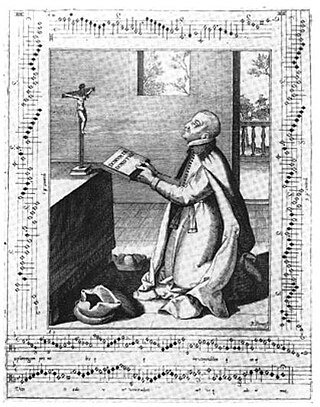
Sebastián de Vivanco was a Spanish priest and composer of the Renaissance.

The Reger-Chor is a German-Belgian choir. It was founded in Wiesbaden in 1985 and has been conducted by Gabriel Dessauer in Wiesbaden. Since 2001 it has grown to Regerchor-International in a collaboration with the organist Ignace Michiels of the St. Salvator's Cathedral of Bruges. The choir performs an annual concert both in Germany and Belgium of mostly sacred choral music for choir and organ. Concerts have taken place regularly in St. Bonifatius, Wiesbaden, and in the cathedral of Bruges in its series "Kathedraalconcerten". The choir performed additional concerts at other churches of the two countries and in the Concertgebouw of Bruges.
Christus factus est is taken from Saint Paul's Epistle to the Philippians. It is a gradual in the Catholic liturgy of the Mass. In pre-Vatican II Roman Rite practice, it was sung as the gradual at Mass on Maundy Thursday, however since the promulgation of the post-Vatican II Mass by Pope Paul VI in 1969 it has been employed instead as the gradual on Palm Sunday. Up until 1970 it was also sung daily at the conclusion of Tenebrae on the last days of Holy Week. It appeared first at Tenebrae of Maundy Thursday, but was not recited in full, ending with ...'usque ad mortem'. The following day at Tenebrae of Good Friday it was sung from the beginning until ...'mortem autem crucis' and at Tenebrae of Holy Saturday it was sung in full. Up until the reform of the Holy Week liturgy promulgated by Pius XII in 1955 these Tenebrae services were sung in the late afternoon and evening of the previous day, and were well attended by the laity. Thus Tenebrae of Maundy Thursday was sung during the evening of Spy Wednesday; Tenebrae of Good Friday in the evening Maundy Thursday etc. For this reason Christus factus est was set by many composers of church music. From 1956–1969, and in the liturgical books of 1962 which are currently in use as the extraordinary form of the Roman Rite, these services have been place back in early mornings of the last three days of Holy Week, with the effect that complex musical settings of this text are rarely heard in their liturgical context.
Quatre motets pour un temps de pénitence, FP 97, are four sacred motets composed by Francis Poulenc in 1938–39. He wrote them on Latin texts for penitence, scored for four unaccompanied voices.

The Oxford Camerata is an English chamber choir based in Oxford, England. The Camerata was founded in 1984 by conductor Jeremy Summerly and singers David Hurley and Henrietta Cowling and gave its first performance on 22 May of that year. The ensemble consists of a core membership of fifteen singers, though personnel size varies according to the demands of the repertoire. While the Camerata is known for performing primarily unaccompanied repertoire, it has also performed accompanied repertoire, employing the services of the Oxford Camerata Instrumental Ensemble and the Oxford Camerata Baroque Orchestra.

Popule meus is a motet for Good Friday by Tomás Luis de Victoria. He set a liturgical text from the Improperia, which contains the Greek-Latin Trisagion, prescribed for use in the Catholic responsory for Good Friday. It begins "Popule meus, quid feci tibi?". The composition, scored for four voices, SATB, was published in Rome in 1585 in Officium Hebdomadae Sanctae.
References
- ↑ Heather Wiebe Britten's Unquiet Pasts: Sound and Memory in Postwar ... 2012 0521194679 p.61 "Its opposite in the English choral scene was the Westminster Cathedral Choir under George Malcolm, of which Britten was an unstinting admirer. Indeed, it had been his first choice for the 1963 recording of the War Requiem."
- ↑ Elizabeth A. Davis A Basic Music Library: Essential Scores and Sound Recordings 0838934617 - 1997 Westminster Cathedral Choir/David Hill Hyperion: CDA66190. [With his Missa Ascendens Christus in altum and selected motets]. 3202.4 Missa O quam gloriosum. (Westminster Cathedral Choir/David Hill). Hyperion: CDA66114.